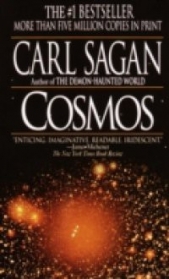Английский язык

Английский язык читать книгу онлайн
Студенту без шпаргалки никуда! Удобное и красивое оформление, ответы на все экзаменационные вопросы ведущих вузов России.
Внимание! Книга может содержать контент только для совершеннолетних. Для несовершеннолетних чтение данного контента СТРОГО ЗАПРЕЩЕНО! Если в книге присутствует наличие пропаганды ЛГБТ и другого, запрещенного контента - просьба написать на почту [email protected] для удаления материала
2. Cell
The cell is a smallest independent unit in the body containing all the essential properties of life. Manу types of human cells can be grown in test tubes after beeing taken from the body. Cells which are functionally organized are often grouped together and operate in concert as a tissue, such as muscle tissue or nervous tissue. Various tissues may be arranged together to form a unit called organ as the kidney, liver, heart or lungs. Organs often function in groups called organ systems. Thus the esophagus, stomach, раn-сreаs, liver and intestines constitute the digestive system.
Cells are characterized by high degree of complexity and order in both structure and function. The cell contains a number.
Of structures called cell organelles. These are responsible for carrying out the specialized biochemical reactions characterizing each. The many chemical reactions taking place in a cell require the establishment of varied chemical microenvironment.
Carefully controlled transport mechanisms along with highly effective barriers – the cell membranes – ensure that chemicals are present in the proper region of the cell in appropriate concentration.
The cell membranes of a mixture of protein and lipid form its surroundings.
Membranes are an essential component of almost all cells organelles. The membrane allows only certain molecules to pass through it.
The most visible and essential organelle in a cell is the nucleus, containing genetic material and regulating the activities of the entire cell.
The area outside of the molecules is called the cytoplasm. Cytoplasm contains a variety of organelles that have different functions.
cell – клетка
independent – независимый
unit – единица
body – тело
all – все
lipid – жир
microenvironment – микровооружение
muscle – мышечный
nervous – нервный
digestive – пищеварительный
life – жизнь
human – человеческий
together – вместе
tissue – ткань
organ systems – системы органов
to function – функционировать
to contain – содержать
membranes – мембраны
protein – протеин
nucleus – ядро
cytoplasm – цитоплазм
different – различный






















